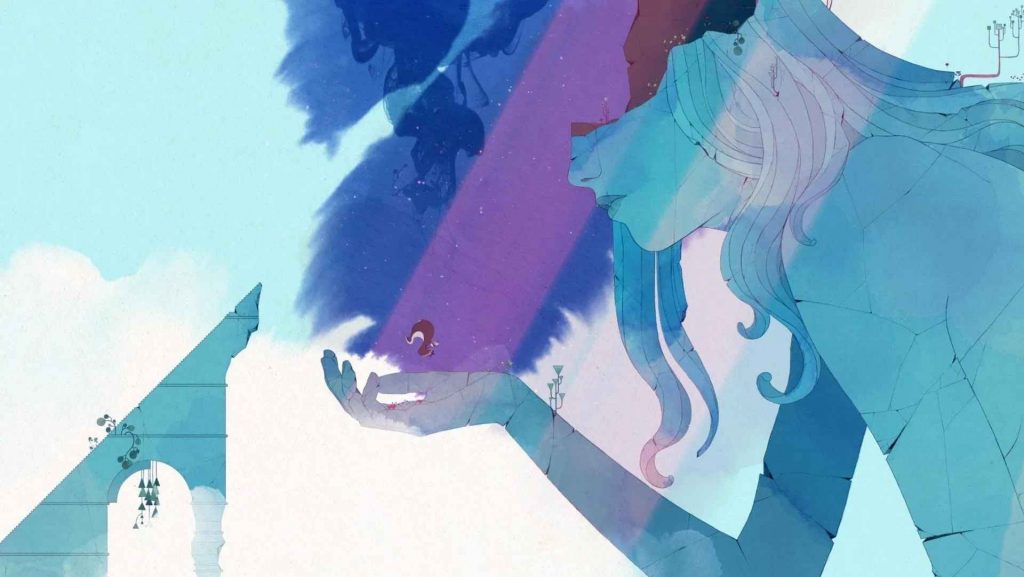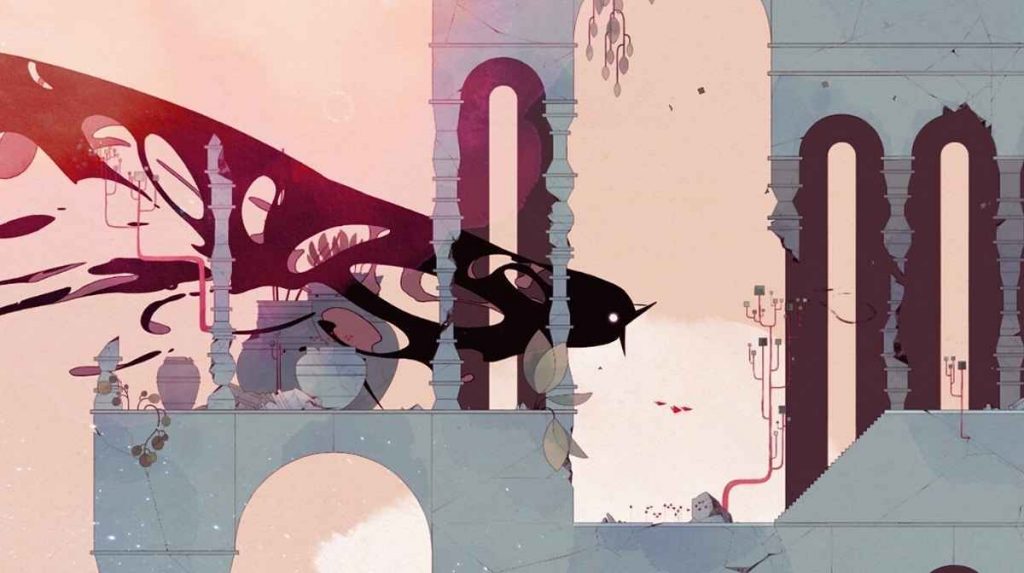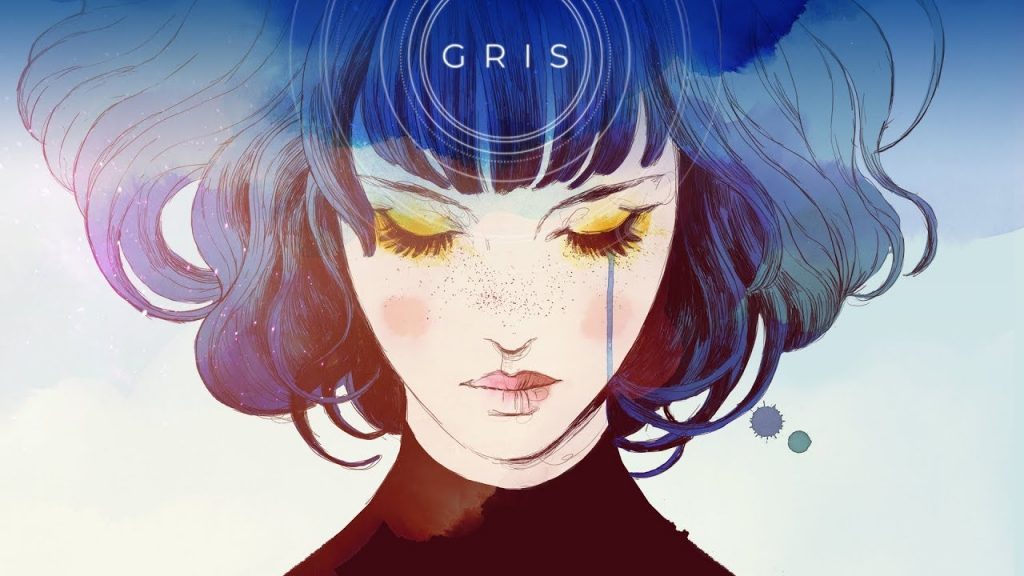Some of the coolest games I’ve come across feature an art style reminiscent of different mediums, like Ratchet & Clank with Pixar or Okami with oil painting. Gris is one of those types of games, but it offers something much more serious than those previously-mentioned titles. Gris offers up a short experience that fills up an evening of gaming, but is it sweet?
Gris PS4 Review
Absolutely Gorgeous Presentation
No words exist in Gris. The entire journey you take with Gris (that is, if my name assumption for the main character is correct) offers nothing in regards to spoken word. However, Gris is far from a silent game. The soundtrack itself offers up just as much to the journey as the visuals do.

Gris starts and finishes in the span of three or so hours, so the full experience doesn’t take too long to see to the end. Many of the set pieces are nothing short of spectacular as well. They truly showcase exactly the kind of visual peaks this art direction can achieve, accentuated by a stupendous musical score to boot. In these moments, I truly feel something special in Gris.
The music in Gris acts more like a character in and of itself than music would in other games. As you move, the tone changes to perfectly reflect on what happens on-screen. Some music stays active while some activates when you reach certain points or interact with objects. This combination creates a surreal feeling of immersion that a game with such a minimal presentation needs to include for its own sake.
Gris is a spectacle of traditional art, showcasing a style that features watercolor with an air of stained glass to everything. Gris is undeniably gorgeous, with stills that look like pieces of art meant for murals or wall displays. Even so, the game in full motions supersedes still images. At times, scenes play with fluid, animated movement while some scenes deliver something of a stop-motion effect; which I promise you is not because of bad frame rates but rather an artistic choice.
Hindrances Built Into The Narrative
With many games like Gris, I found myself considering a great many things post-game. The first in particular was one thing that continuously kept me from staying “in the moment” the entire time I played Gris. I want to precede this point by indicating how generally thoughtless I am with puzzles. I either successfully laze my way through them with a combination of response and luck (more weight on the latter variable) or I rack my brain over what should be simple solutions.

In the moments, these puzzle frustrations hindered me. Combine that with the game’s lack of communication, and it’s a troublesome combination for people like me. Still, I persevered, but the “aha” moments felt more like “duh” moments. I realize I am to blame in part for my frustrations, but the reasons other games like this, such as Journey, fare better comes with how easily the content is consumed.
Platforming also feels these effects. In many cases, a jump requires very precise timing in order to properly land where you need to go. This stretches out gameplay further because you then have to backtrack and try again. This adds rather peculiar difficulty into a game with very straightforward platforming.
Related Content – Best PS4 Indie Games
To make matters worse, a couple of the boss encounters suffer from these kinds of circumstances. When clever pacing meets frustration, the intended outcome suffers. A point I want to make very clear in this explanation is that seeing what the creators intended is very, very clear. However, the flow of these encounters, especially in such a short experience, affect how you consume those encounters.
The previous statement is where I have spent the most time thinking about Gris after I finished it. If I had not had difficulties, those spectacle moments would not have been so spectacular. At the same time, I still have to consider that pacing in Gris isn’t the kind that feels wholly satisfying either. I also know my personal shortcomings are not common in everyone, hence the conundrum.
Gris Is An Artistic Vision
Regardless of my personal issues, I feel the stumbles in Gris are not so much shortcomings in the game itself but instead the creator’s intent to show rather than tell. At its very heart, Gris is a story about overcoming fears or darkness or personal issues or shortcomings, with the visual cues, like uses of light or water or darkness, as general, yet specific enough visuals to invoke many different inspirations for so many people. When you hit a roadblock, you either accept it as the end of the line or you find a way around it.
As a complete product, Gris offers hope in a sea of darkness, choreographed in an absolutely beautiful aesthetic. Pace will undoubtedly vary from player to player, the end justifies the means, even if the means hold their own share of relative frustrations. With those aside, Gris delivers a unique perspective as well as a welcome feeling of hope. Quite frankly, everyone benefits from a little hope now and again.
Review code kindly provides by publisher.
